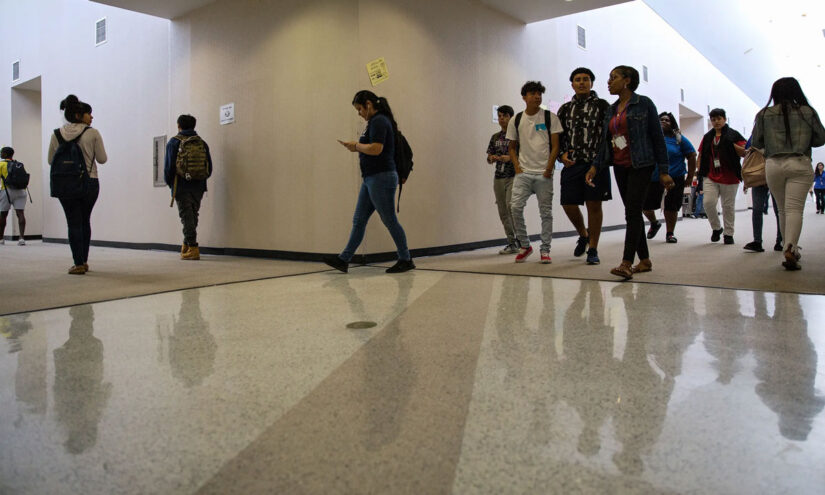Reflecting on the tenets that shape our educational practices is fundamental for …
STAAR Results Reveal Texas High School Students Are Still Struggling with Math Scores
Jennifer Livingstone

Statewide standardized test scores that were recently released showed that high school students in Texas are still facing challenges with algebra, renewing worries about their preparedness for lucrative STEM careers.
The Texas Education Agency’s end-of-course tests cover five key subjects: Algebra I, Biology, English I, English II, and U.S. History. These assessments determine whether students have a solid grasp of the content at their grade level and if they require additional support to progress.
This spring, 45% of students who took the Algebra I test met grade level, mirroring last year’s results. Despite the pandemic, there hasn’t been significant improvement in students’ performance on this exam. These recent scores remain 17 percentage points below those from spring 2019.
“The statistics are clear – Texas students are facing ongoing challenges in math recovery,” remarked Gabe Grantham, a policy advisor at Texas 2036, a public policy think tank. “There is a genuine risk of leaving students without the necessary math skills to succeed in the future workforce.”
Experts in education policy closely monitor Algebra I outcomes as numerous studies have linked this subject to students’ future career achievements post-high school. Kate Greer, the policy managing director at The Commit Partnership, stated that STAAR scores help researchers analyze districts that outperformed the state average, paving the way for concrete policy suggestions to enhance math performance.
“We are still underperforming compared to the pre-pandemic era, so it is crucial for the state to concentrate on what has been proven to be effective,” indicated Greer. “Assessments enable us to focus adult behavior, pinpoint areas for improvement, and highlight best practices that are yielding positive results.”
In contrast, English test scores among high school students have improved consistently in recent years. Students learning English as a second language have shown steady progress in English I and II exams. The percentage of these students who met grade level rose from 12% in 2019 to 30% this spring.
Despite U.S. History and Biology test results still trailing pre-pandemic standards, they are closer to catching up than in the case of math.
Overall, economically disadvantaged students scored lower across all subjects compared to their peers without economic hardships. For instance, 35% of economically challenged students met grade level in Algebra I, while the figure stood at 61% for others.
To enhance math proficiency, the Texas Legislature passed Senate Bill 2124 last year, automatically moving middle school students to higher math classes based on their performance in previous courses. Lt. Gov. Dan Patrick has highlighted reading and math readiness as an interim legislative priority, hinting at a potential revisit to the issue in the upcoming legislative session.
Disclosure: Both Commit Partnership and Texas 2036 have supported The Texas Tribune financially. It’s a nonprofit, nonpartisan news organization funded partly by donations from members, foundations, and corporate sponsors. These financial supporters have no influence over the Tribune’s journalism. You can find a full list of supporters here.
This story was originally published on The Texas Tribune at https://www.texastribune.org/2024/06/07/texas-staar-scores-math-algebra/.


